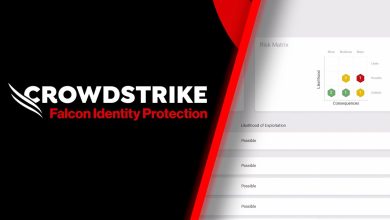Salesforce State of IT Report: APAC Security Leaders Optimistic About Agentic AI to Tackle Security Concerns, but Concerns Remain
IT Security Leaders Expect AI Agents to Be Beneficial, Yet Most See Significant Readiness Gaps in Deploying Proper Safeguards

As Artificial Intelligence (AI) adoption accelerates and cyber threats increase, nearly 8 in 10 IT security leaders in Asia Pacific recognise their security practices need transformation. Salesforce’s latest State of IT data also reveals unanimous optimism about AI agents, with 100% of security leaders across the region identifying at least one security concern that could be improved by agents.
However, despite this hope, the global Salesforce State of IT survey of over 2,000 enterprise IT security leaders, including 588 in Asia Pacific, highlights significant implementation challenges ahead. Across Asia Pacific, half (50%) worry their data foundation is not set up to get the most out of agentic AI, and 57% are not fully confident they have the appropriate guardrails to deploy AI agents.
Artificial Intelligence is increasingly being used by bad actors looking to exploit security vulnerabilities, creating a rapidly evolving threat landscape. At the same time, security professionals are also using AI to protect their companies’ data and systems. Autonomous AI agents, which help security teams cut down on manual work, can free up humans’ time for more complex problem-solving. However, agentic AI deployments require robust data infrastructure and governance to be successful.

“Organisations can only trust AI agents as much as they trust their data. When 62% of security leaders in Asia Pacific report that customers remain hesitant about AI adoption due to security and privacy concerns, it’s clear that robust data governance isn’t optional, but essential. IT teams that establish strong data governance frameworks will find themselves uniquely positioned to harness AI agents for their security operations all while ensuring data protection and compliance standards are met,” said Gavin Barfield, Vice President & Chief Technology Officer, Solutions, ASEAN, at Salesforce.
Salesforce State of IT Report by the Numbers
Security Budgets Ramp Up as Threats Evolve
In addition to a familiar slate of risks like cloud security threats, malware, and phishing attacks, IT leaders, according to the Salesforce State of IT report, now cite data poisoning—in which malicious actors compromise AI training data sets—among their top concerns. Resources are rising in response: 76% of organisations expect to increase security budgets over the coming year.
Complex Regulatory Environments Add a Wrinkle to AI Implementation
While 82% of IT security leaders believe AI agents offer compliance opportunities, such as improving adherence to global privacy laws, they acknowledge that AI agents also present compliance challenges. This stems partly from an increasingly complex and evolving regulatory environment across geographies and industries, compounded by compliance processes that remain largely unautomated and prone to error.
- Just 52% told the Salesforce State of IT survey that they are fully confident they can deploy AI agents in compliance with regulations and standards.
- 85% of organisations say they have not fully automated their compliance processes.
Trust Is a Cornerstone of Successful AI, Yet Confidence Is Nascent
A recent consumer study found that trust in companies is on a precipitous decline, and 6 out of 10 (61%) consumers in APAC agree that advances in AI make a business’s trustworthiness more critical. Furthermore, 64% of consumers trust companies less than they did in 2023. IT security leaders see work to be done in earning this critical trust.
- 51% are not fully confident in the accuracy or explainability of their AI outputs.
- 54% do not provide full transparency into how customer data is used in AI.
- 54% have not perfected their ethical guidelines for AI use.
Data Governance Is a Linchpin in Enterprises’ Agentic Evolution
Tellingly, the Salesforce State of IT report found that less than half of IT security leaders are not sure they have the quality data to underpin agents, or that they could deploy the technology with the right permissions, policies, and guardrails, but progress is being made. A recent survey of CIOs found that four times as much budget was allocated to data infrastructure and management than AI, a signal that organisations were smartly laying the right groundwork for broader implementation.
AI Agents Offer a Salve as Adoption Ramps Up
According to the Salesforce State of IT research, close to half (45%) of IT security teams already use agents in their day-to-day operations—a figure that’s anticipated to increase by more than half over the next two years. IT security leaders expect a range of benefits as their use of agents ramps up, ranging from threat detection to sophisticated auditing of AI model performance. Almost three quarters (74%) expect to use AI agents within two years—up from 45% today.
Preparing for the Agentic Era
While the adoption of AI agents brings forth considerable advantages, there are still areas where IT security teams need to strengthen their foundations. In addition to the steps these teams must take to shore up their data infrastructure for the agentic era, over half admit they have work to do to bring their overall security and compliance practices up to par. Based on the Salesforce State of IT report, only 57% believe their security and compliance practices are fully prepared for AI agent development and implementation.




